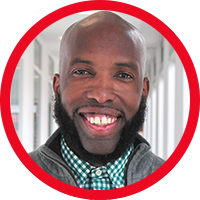CoTL 2023

13th Annual South Alabama Conference on Teaching and Learning
Monday, May 8 | 6pm - 8pm (CST) - SOLD OUT
Dinner and performance by the South Alabama Indian Music Ensemble
Tuesday, May 9 | 9am - 2pm (CST) | In Person
Wednesday, May 10 | 9am - 2pm (CST) | Virtual
Theme: Looking Within & Looking Beyond
Learners feel welcomed, valued, and safe in an inclusive environment, requiring intentional and deliberate instructional strategies, which have led to significant increases in student success across disciplines and learner populations (e.g., Eddy & Hogan, 2014; Sathy & Hogan, 2022; Winkelmes, et al., 2016; among many). While we know the influence of inclusive strategies, it is still important to ask: Who are our learners? Armed with this knowledge, we can design learning environments, within the traditional classroom, online, and in other campus spaces, that genuinely incorporate the needs of our learners. Looking within, we seek to investigate our classrooms, course design, and delivery to explore intentional instructional practices and connect with our students.
Identifying our learner’s needs incorporates multiple voices. We seek to take into account employer-valued skills and career-readiness practices to reach our students in addition to the student, faculty, and community perspective. Merging these diverse viewpoints leads to the development of coordinated and innovative programs such as virtual global exchanges or a transdisciplinary curriculum, potentially with a focus on the sustainability of our local region. Then, Looking beyond, we not only aim to address the current trends in educational technology and how these platforms can support our learner-centered mission but also the joint efforts of campus units that enhance learning outside of the classroom (e.g., Gulf Scholars and IDEAS grants). We may explore how new AI tools are changing the way we teach and assess and ask how can I use ChatGPT in my classroom? We may also ask, how could my class connect with relevant problems in the local community?
As a partnership between USA, Spring Hill College, University of Mobile, and Pathway USA community colleges including Bishop State, Coastal Alabama, Mississippi Gulf Coast, this conference reaches a diverse audience, all of whom are engaged in a variety of ways of supporting students. This year’s theme, “Looking Within & Looking Beyond,” allows us to reflect on how we pay attention to, identify, and, ultimately, make use of who our learners are and what it means to be a facilitator of an inclusive learning environment, no matter what that environment looks like (i.e., online, face-to-face, an advising meeting, etc.).
The conference will feature two keynote speakers and a lunchtime plenary presentation. One keynote will feature a noted STEM educator who is leading the conversation in many circles on truly inclusive learning environments that can support the success and career progression of students from communities underrepresented in many STEM fields. He will challenge us to ‘look within’ for ways in which our teaching, our assessment, our institutional structures can change to provide equitable opportunities for all learners. The keynote on the conference virtual day (May 10) will be ‘looking beyond’ - especially focused on the promises and challenges of educational technology trends to be disruptive to doing things 'the way we have always done them’. A published author of two books, this virtual keynote presenter will speak to both our online faculty as well as those utilizing technology in their teaching on a daily basis. Finally, the lunchtime plenary on day one (May 9) of the conference will be led by an actor, dramatist, and theater-educator who will engage the audience in considerations of time, space, assessment, and power within our learning environments. It promises to be active learning in the truest sense of the phrase.
Contributed presentation topics may include factors related to instruction, such as
designing learner-centered classrooms, alternative assessments, small group activities,
and transparent course design and lessons. As our courses span face-to-face, hybrid/blended,
or fully online teaching environments, you may also wish to explore meaningful ways
to incorporate educational technology in your classrooms, such as intentional uses
of social annotation tools and discussion-based software. For instance, you might
share how students have benefited from a particular practice or technology or how
you have revamped your course design to address the needs of your current learners.
Through a variety of presentation formats including workshops, panels, research talks
and a poster session, we invite you to share your scholarly work in an inviting, supportive,
yet peer-reviewed conference tailored to the needs of instructors along the Gulf Coast.
Keynote Speakers
 Bryan Dewsbury, Associate Professor, Biological Sciences
Bryan Dewsbury, Associate Professor, Biological Sciences
Florida International University
Beyond Inclusion: Teaching for Civic Participation and Democratic Engagement
In this talk we will discuss the role of the college classroom in preparing students,
not simply to be technical participants in society through subject-matter careers,
but also civic participants through the development of behaviors endearing them to
successfully navigating difference and social challenge. We will discuss the ways
in which some of these pedagogies are explicit, but others are implicit and embedded
in the way we construct environments that relentlessly welcome students into our spaces
of learning.
 Neil Silcox, Faculty Excellence Developer
Neil Silcox, Faculty Excellence Developer
Maple League of Universities
Play’s the Thing: Lessons in Experimentation from the Theatre Studio for Every Classroom
We often tell our students that college is where they should be taking risks, getting
messy, and learning from their failures – but how much do we embrace these principles
in our teaching and course design? This practical workshop will help us understand
how we can embrace our false steps, flops, and fiascos in order to help us discover
unexpected paths to success in the classroom.
 Derek Bruff, Educator, Author, Consultant
Derek Bruff, Educator, Author, Consultant
Leading Lines: Inventing the Future of Educational Technology
Predicting the future is hard, at least for those of us without crystal balls. Inventing
the future, however, is something we can all do, if not directly, then by sharing
our ideas about what we want from the future. In this session, we’ll do a little inventing
of the future of teaching and technology. By reflecting on recent educational technology
trends and understanding the teaching and learning principles that are at play in
all educational contexts, we’ll point the way to the future of digital learning and
digital pedagogy that we want to see.
Presentation Types
Interactive Workshops | Panels | Research Talks | Virtual Roundtables | Online Poster Exhibits
Points of Contact
Dr. S. Raj Chaudhury, Innovation in Learning Center, schaudhury@southalabama.edu
Dr. Lisa LaCross, Innovation in Learning Center, lacross@southalabama.edu
2023 Conference Partners

